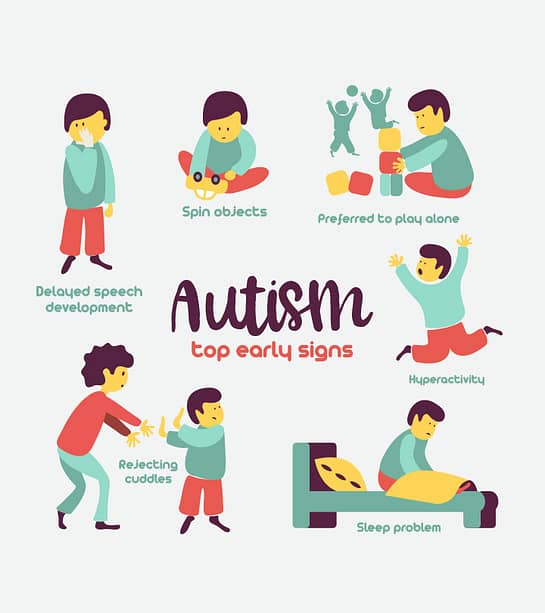Autism Spectrum Disorder (ASD) is a complex neurological and developmental disorder that affects a person’s ability to communicate and interact with others. It is called a “spectrum” disorder because it can range from mild to severe and can present differently in each person. ASD is typically diagnosed in early childhood, although it can sometimes be diagnosed later in life.
People with ASD may have difficulty with social interactions and communication, and may also have repetitive behaviors or interests. They may have trouble understanding social cues and may not understand the concept of personal space. They may also have difficulty with sensory processing, which can cause them to be oversensitive or under sensitive to certain stimuli such as light, sound, or touch.

ASD is a lifelong condition, but with early diagnosis and appropriate treatment, many people with ASD can lead fulfilling and productive lives. Treatment options may include therapies such as speech therapy, occupational therapy, and behavioral therapy. Some people with ASD may also benefit from medications to manage associated symptoms such as anxiety or attention deficit hyperactivity disorder (ADHD).
It is not known exactly what causes ASD, but research suggests that it is likely a combination of genetic and environmental factors. Studies have found that ASD tends to run in families, suggesting that there is a genetic component to the disorder. However, the specific genes that are associated with ASD have not yet been identified.
There is no cure for ASD, but early intervention can greatly improve outcomes. The American Academy of Pediatrics recommends that all children be screened for developmental delays and disabilities at their 18 and 24 month well-child visits. If a child is diagnosed with ASD, it is important to begin treatment as soon as possible to maximize the benefits.
It is important to remember that every person with ASD is unique and may have different strengths and challenges. It is also important to recognize that people with ASD have the same range of intelligence and abilities as neurotypical individuals. Some people with ASD may have exceptional abilities in areas such as music, math, or art, while others may have intellectual disabilities.
It is important for parents and caregivers to understand and support the needs of individuals with ASD. This may include creating a structured and predictable environment, providing visual supports and tools to help with communication and organization, and teaching social skills and coping strategies. It is also important to educate others about ASD and to advocate for the rights of individuals with ASD in the community.
It is crucial that people with ASD are included and accepted in their communities and given the support they need to lead fulfilling and productive lives. With understanding and acceptance, people with ASD can thrive and reach their full potential.
If you are a parent of a teenager with autism spectrum disorder and you are looking for support and guidance, I encourage you to book a free consultation with me as I specialize in ASD in adolescents. I am here to support you and your teenager on their journey toward healing and growth. Click here to schedule your consultation today.





